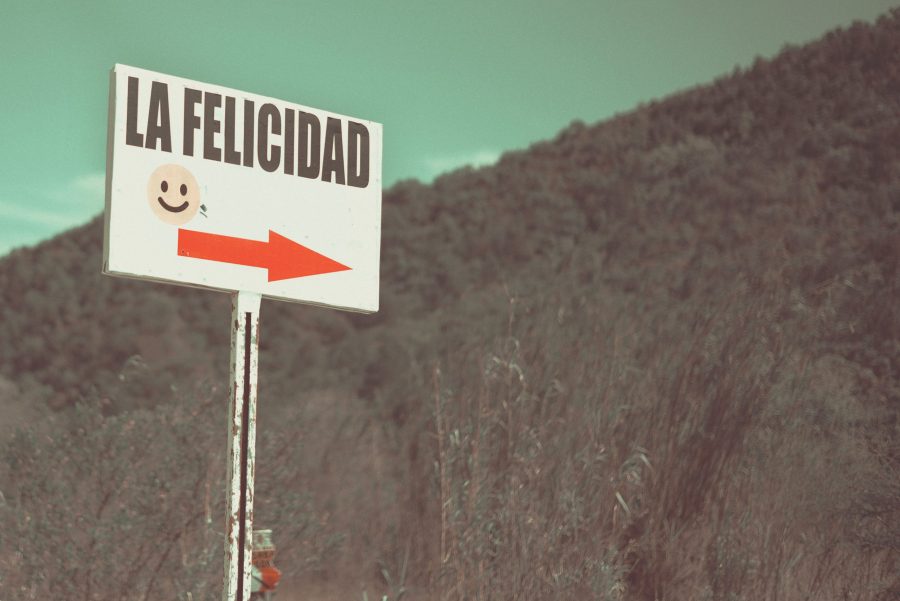“Some say that happiness lives far away. Others say it resides close by, in our own home. But true happiness lives in the cradle of a child born of love”.
I don’t know if Freud knew this Chinese proverb. I do know that in order to learn what happiness is, he liked to contemplate the angelic peace, the tranquillity that is imprinted on the face of the beloved child: “Wealth does not make us happy”, he concluded, “and the proof is that money was never a childhood desire”. Yes, children do not dream of money, sex, power, glory or vanity. Their happiness takes the form of arms, laps, breasts and cuddles. They are happy to the point of feeling waves of affection.
Many people think that the greatest happiness a person can aspire to is to experience times of joy and times of sadness, times now of love and then of anger, times of disappointment followed by times of burning faith. We should spend our lives, as the title of a novel by Carmen Martín Gaite says, in a bewilderingly variable cloudiness. Because of this atmospheric fickleness, we give up the search for complete happiness and content ourselves with the fashionable popcorn called “well-being” and “quality of life”.
By “well-being” we mean an existence endowed with sufficient material means not to suffer the sting of economic poverty, to have access to education and health care, and not to lack employment and social protection. Is that important? Certainly, and any just society should seek to provide all this for its citizens. All this and more, the “quality of life”: good infrastructure, cultural activities for the body and mind, leisure facilities, the possibility of human relations.
Do these things constitute a happy life? The fact is that we adults hoard as much as we can, making happiness dependent on the indefinite consumption of market products.
And perhaps most people have never spent a minute reflecting on why they buy a certain car, why they insist on the latest computer or a house that is too expensive for their pocket.
It is worth knowing that once basic needs -food, shelter, clothing, health- have been met, societies spend most of their assets on satisfying psychological needs. Identity needs. The desire to belong to a social group leads adults and young people to consume products that the group appreciates. Hence the goal of the spectacular car, the fur coat, designer shoes and trousers. Security needs. Lost in the jungle of endless offers, the consumer clings to certain brands to be sure of making the right choice. Need to compensate. Loneliness, heartbreak or professional failure lead us to buy products that would be of no interest if these situations did not exist. Finally, the need for novelty. The desire to break the monotony of life, to change something, incites us to consume easily dispensable items.
In any case, is happiness directly related to the gluttony of consumption? Will indefinitely increasing the consumption pile mean increasing happiness?
Most of the actions that bring happiness do not need market trinkets. Savouring human relationships, going for walks, contemplating landscapes and monuments, reflecting, none of these require expenditure. Other activities involve some expense, but those that are, in principle, more expensive do not bring more happiness. Reading, playing sport, listening to music, sharing a pleasant meal… all help us to savour life. Not to mention the joy of showing some kind of solidarity: doing good to others – according to Fleming, the inventor of penicillin – gives more satisfaction than money, power or fame.
I would like to pit two kinds of people against each other: those who need a lot of junk to be happy (being filthy rich, stuffing themselves with whisky, getting bogged down in orgies) and those who have opted for the culture of human relationships, the enjoyment of nature, family comfort, peace and quiet. Tell me, the reader, who is a bit too old for that, which ones will be the luckiest.
We run the risk of setting the bar of happiness too low. And I believe that churches and believers are responsible for this renunciation on the part of people to be happy down to the basement, to the very depths of their being. Religions propose maxims of happiness, the beatitudes are the headline of the Gospel of Christ -and we preach second and third division stuff! When the problem, the huge problem, is that most people no longer aspire to full happiness, no longer dream of a meaningful world, no longer understand anything about hope or love-.
Maybe that’s why I love this white poem by a boy from Costa Rica called ‘Mi casa’:
“In my house there are two rooms,
two small beds,
a small window
and a white cat.
In my house we only eat at night,
when my father comes back with a bag
full of bread and dried fish.
In my house we are all poor,
but dad has blue eyes,
Mum has blue eyes,
my brother has blue eyes,
I myself have blue eyes
and even the cat has blue eyes.
When we sit at the table
our house looks like a blue sky”.
Abílio Pina Ribeiro, cmf
(PHOTO: Cesira Alvarado)






